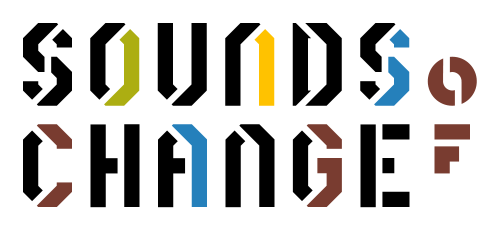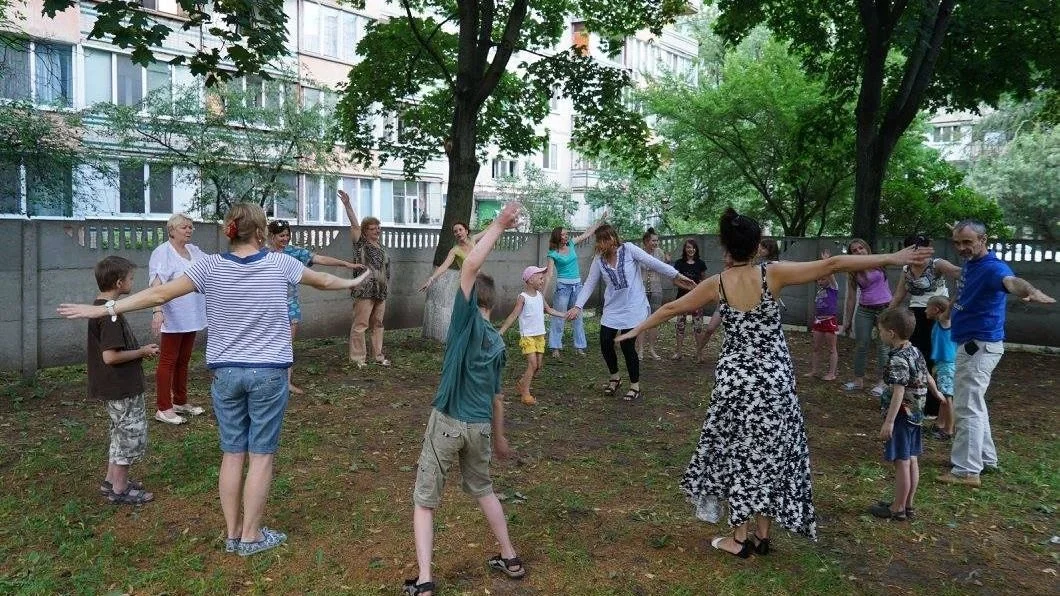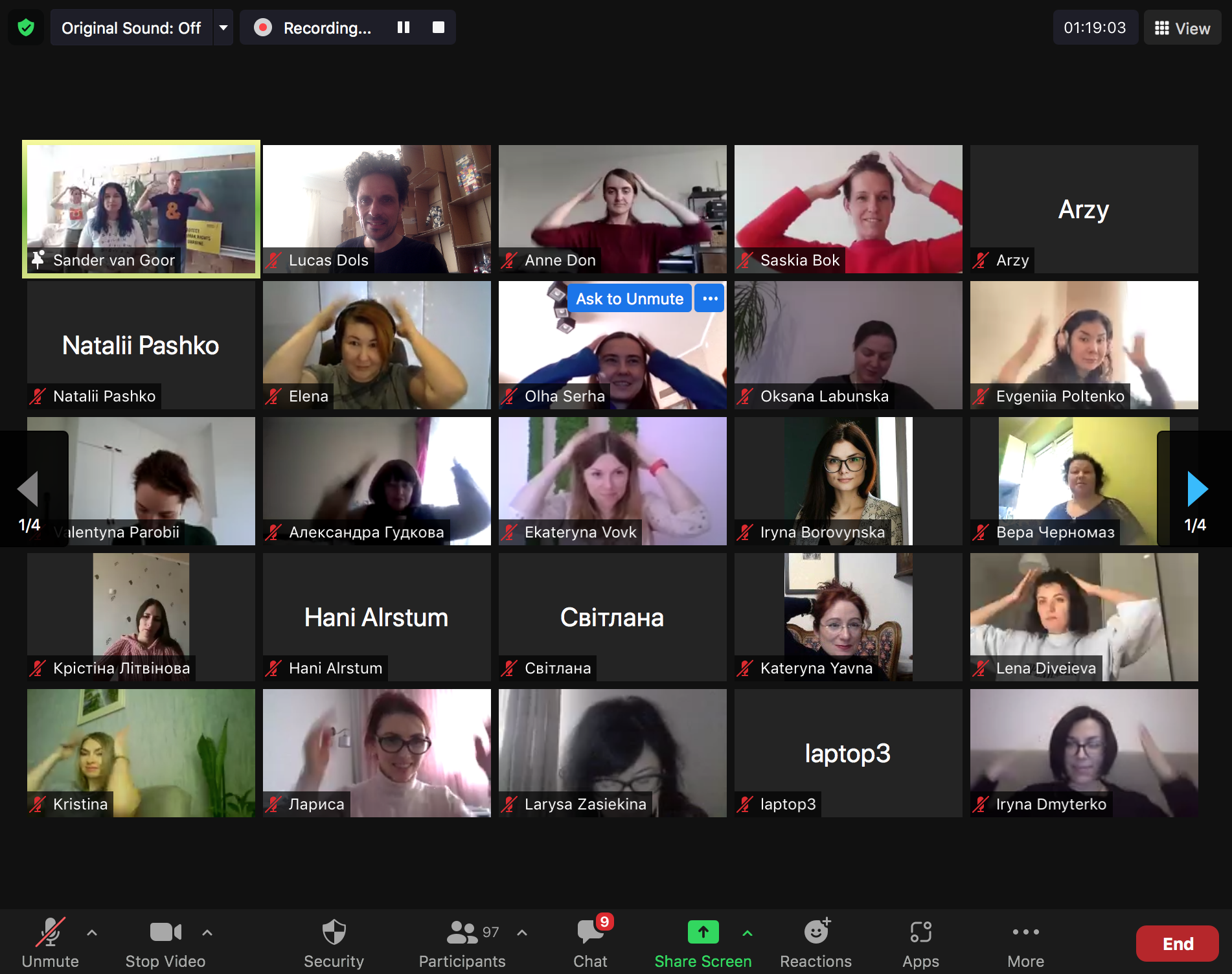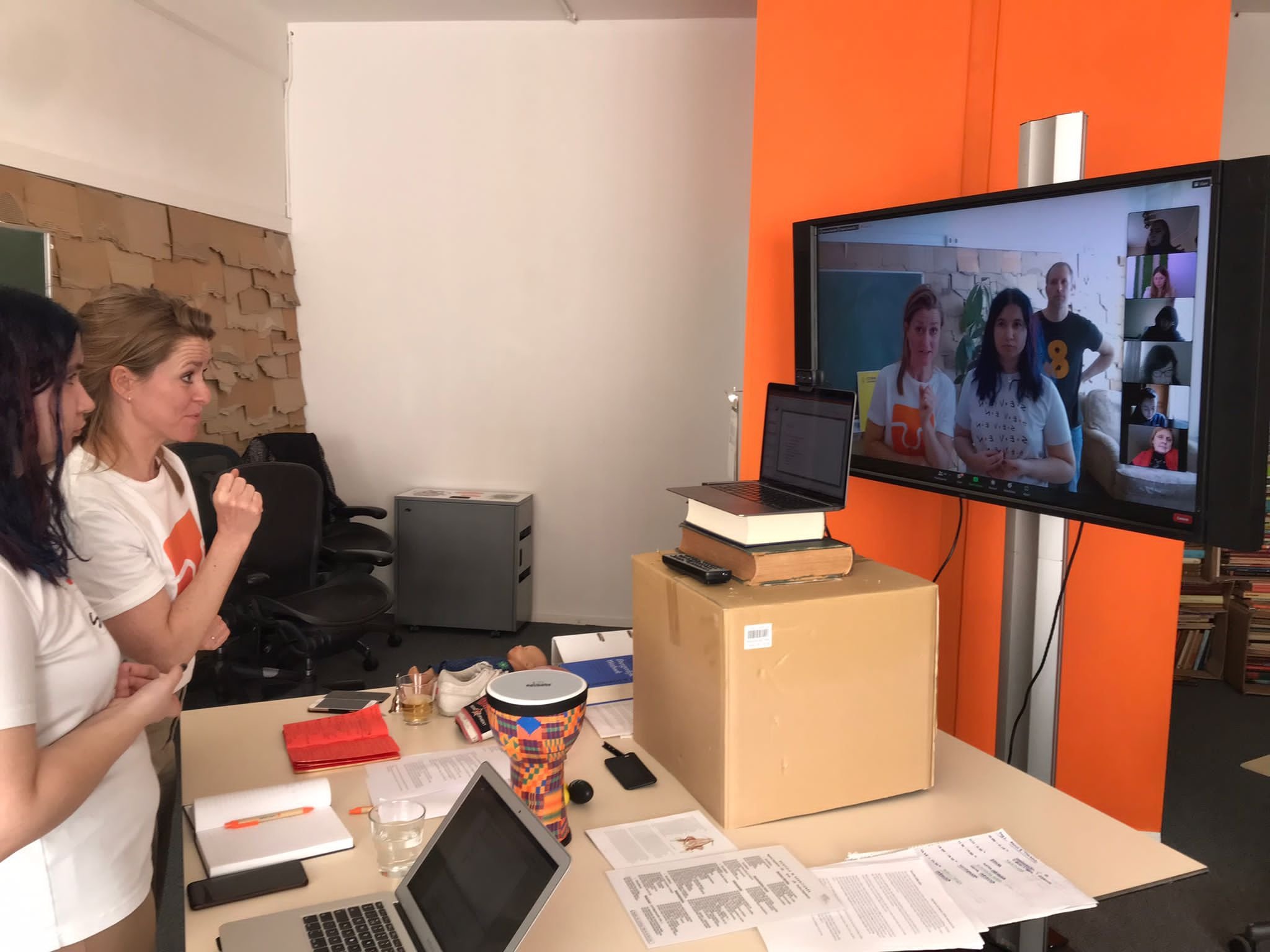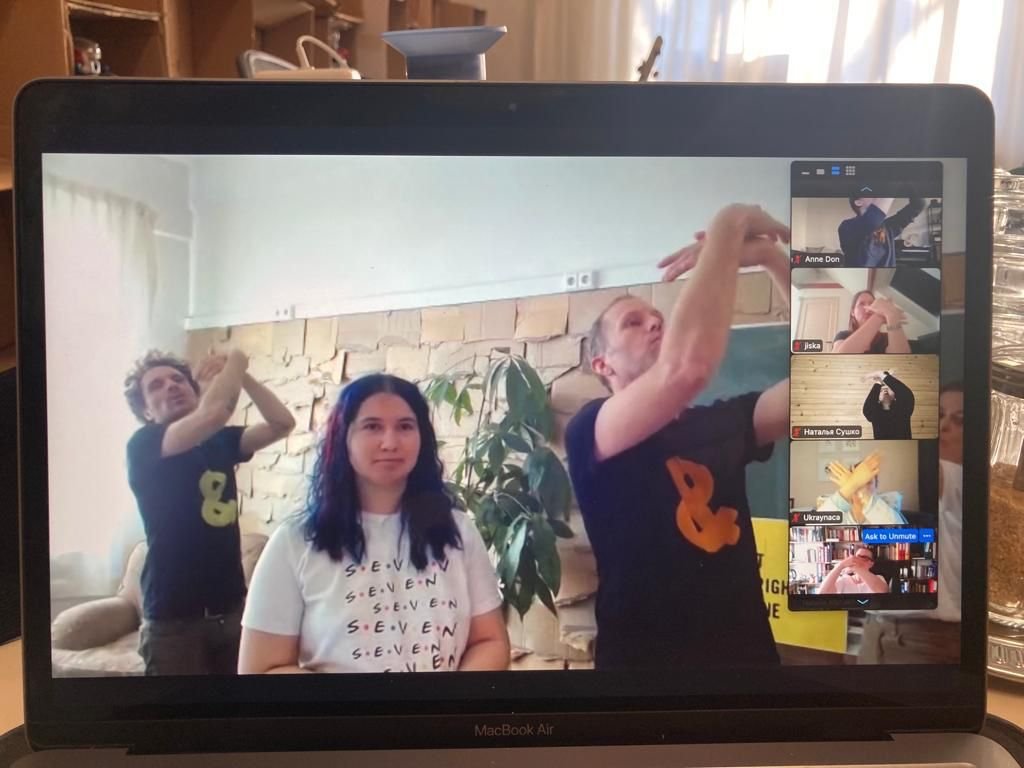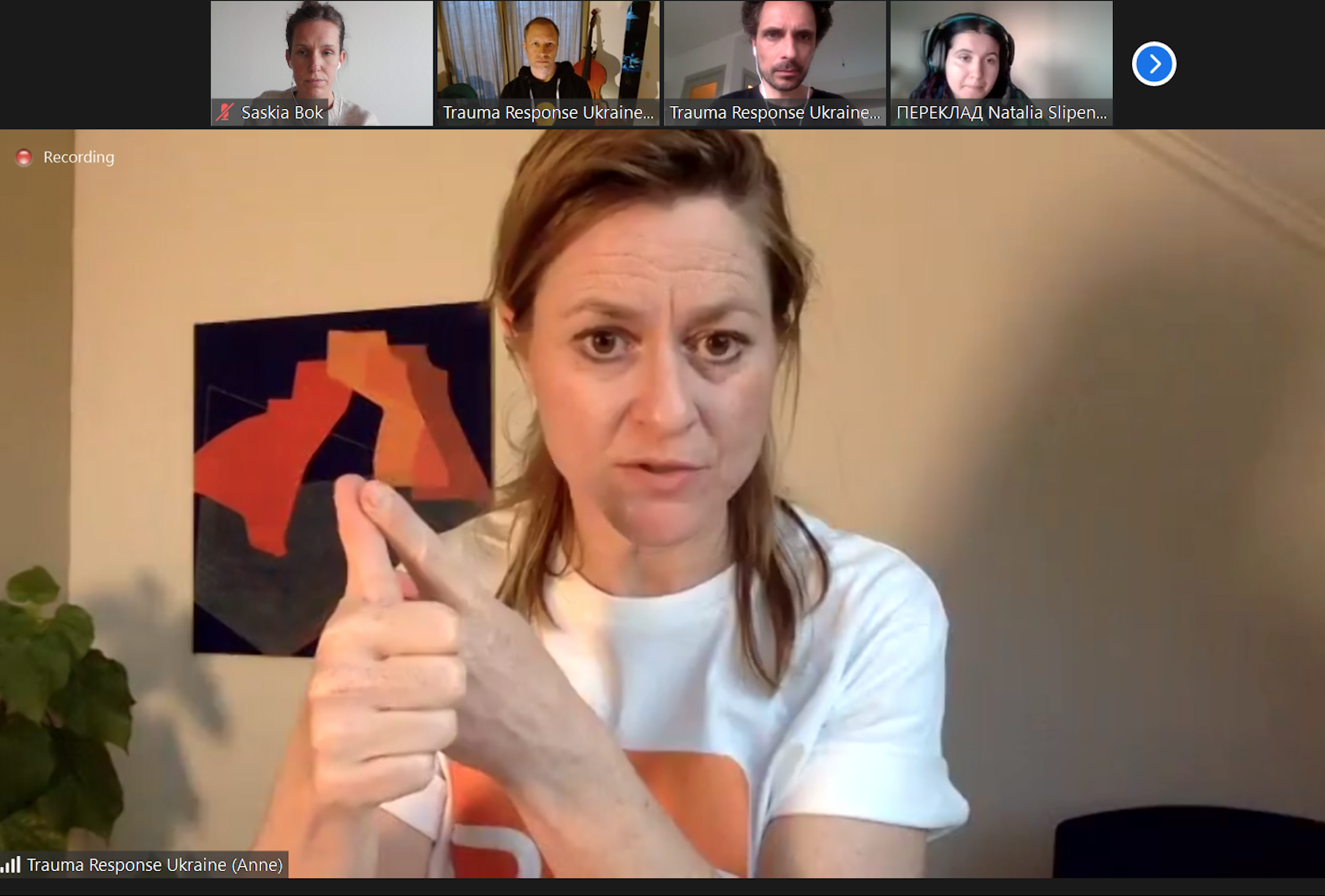Trauma Support Ukraine
In 2016 and 2017 we were invited to give masterclasses at Kyiv University. The university was interested in the power of music and the possibilities of applying music in work with (traumatized) children and young people. As part of the masterclass, we took the students to an orphanage, where the students could practice and implement what they had learned with children. These children were victims of the armed conflict that has raged since 2014 between pro-Russian separatists and the Ukrainian army.
Now, 5 years later during the recent war in Ukraine, we got a message from the psychologists we were working with at the time. They asked us for help, to learn how to deal with acute trauma.
Together with trauma expert Anne van den Ouwelant (Trauma Company/Trauma International) and music therapist Sander van Goor (Safe & Sound/Sounds of Change) we started the Trauma Support Ukraine team.
On Friday the 4th of March, the Trauma Support Ukraine team provided an online training on trauma-sensitive support in acute crisis situations to 125 Ukrainian psychologists, who still live on location in Ukraine. Since then, our online training program continues weekly, with more and more Ukrainian psychologists and mental health professionals getting connected.
The current acute crisis in Ukraine is dangerous, unpredictable, insecure, and stressful. Over 1.7 million people have fled the country as of March 7 (UNHCR), with many families facing separation as some members remain left behind. With the precarious situation in Ukraine and the fastest-growing refugee crisis in Europe since World War II, the mental health professionals responding to the psychosocial needs of the people affected are facing many stressors. In addition to being tasked to support others who have experienced severe stress and in some cases trauma, they are also experiencing the same stressors and insecurities. This means that psychological and mental health professionals are potentially facing a heavy burden of severe mental health and traumatic stress symptoms that they may not have dealt with in their previous work (Medair). Furthermore, it (sadly) needs no further elaboration to understand that the current crisis, with daily bombings and attacks of civil targets, will leave children, youngsters and adults traumatized and in need of specialized care.
The trainingcontains psycho-education (based on the most recent neuro-scientifical knowledge, but given in a very practical and clear way) on how to support children, youngsters and adults who are in an acute crisis situation or who just left from an acute crisis. It goes into all necessary topics related to stabilization and in-crisis support, combined with strong (breathing, body, cognitive and non-verbal) techniques and practical tools to support people who are overwhelmed from all experiences and the current situation. Important in these training is also the self care exercises for all participants, in order to prevent secondary traumatization and/or burnout. Furthermore, part of the training consists of continuous supervision for participants who have joined the training programs. All participants receive short videos and audios of (those parts of) the webinars with practical exercises and information, in order for them to also review this afterwards and possibly share it with other colleagues in the field.
We will keep you posted about the upcoming masterclasses in the coming weeks and the progress of the Trauma Support Ukraine Team.
If you would like to support our Trauma Support Ukraine team by donating a financial contribution, we will be very thankful!
We made a dedicated information and donation page for the Trauma Support Ukraine team at our website.
